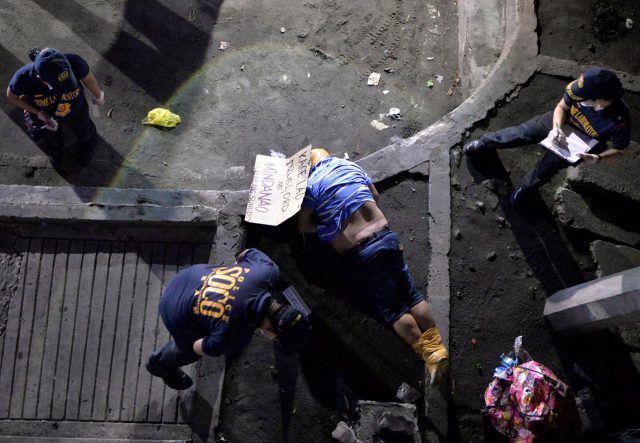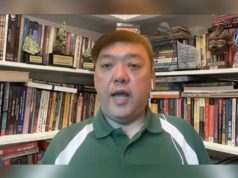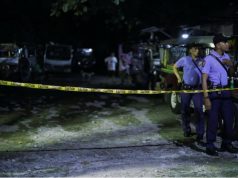
MANILA, Philippines — An international rights watchdog urged the Philippine government to back a United Nations-led investigation into drug war deaths to “both help clarify the disparity in official and independent estimates of killings in the anti-drug campaign and facilitate accountability for unlawful deaths.”
Human Rights Watch noted that, while the Philippine National Police lists only 3,968 drug suspects killed in “legitimate police operations” from July 2016 to January 17, 2018, “independent estimates of deaths linked to the ‘drug war’ are considerably higher.”
“The nongovernmental groups Philippine Alliance of Human Rights Advocates and the International Drug Policy Consortium, as well as media outlets including the Sydney Morning Herald, estimate the number of drug war deaths at more than 12,000. The Catholic Bishops’ Conference of the Philippines estimates that there have been more than 13,000 killings linked to the anti-drug campaign,” HRW said.
“The glaring disparity between the Philippine government’s official death toll and those of credible independent observers underscores the urgent need for a UN-led independent investigation into killings since the drug war began in June 2016,” Phelim Kine, HRW deputy Asia director, said.
“The government should welcome a UN effort to establish an impartial and verifiable death toll as a crucial first step in accountability for wrongful deaths,” he added.
But the group stressed that “even the PNP’s estimate of drug war deaths is an alarming number of killings that warrant independent investigation.”
HRW accused the government and police of having “sown confusion” since authorities “stopped issuing timely drug campaign-related data” in January 2017, when the involvement of police in the abduction and murder of Korean businessman Joo Ick Jee became known.
At the time, it said, the PNP had “attributed a total of 7,080 deaths to police operations as well as ‘vigilante-style or unexplained killings’ between July 1, 2016 and January 31, 2017.”
HRW said that even after government launched #RealNumbersPH, “combining statistics from agencies including the PNP, the Philippine Drug Enforcement Agency, and the Department of Health” in May last year, “an analysis of drug war data during 2017 by the Philippine Center for Investigative Journalism criticized official statistics as ‘writ in riddles and feature flawed and inflated numbers that are wildly different from what the primary drug-war data source, the PNP, had reported on the same dates or for the same covered periods’.”
PCIJ also “questioned the police decision to expand the number of categories of killings it records, describing those categories as having ‘changed arbitrarily over time, and may thus raise questions about numbers shaving or double counting’,” concluding that this “paved the way to another level of confusion in clustering and comparing the numbers.”
HRW said the need for a UN-led probe has become more urgent after the PNP resumed Oplan Tokhang, saying Director General Ronald dela’s vow that the anti-drug campaign would be “transparent” and would not repeat “mistakes of the past” this time around has been weakened by “the lack of meaningful accountability for drug war deaths over the past year and a half” and the PNP chief’s rejection of calls for independent investigations as “legal harassment” and a cause of demoralization.
HRW also urged member-countries of the UN Human Rights Council that issued last year two joint statements that urged the Philippine government to “take all necessary measures to bring these killings to an end” and to “cooperate with the international community to pursue appropriate investigations into these incidents” to press for the UN-led investigation.
“The Philippine government can either seek UN assistance to investigate abuses in its anti-drug campaign or be the subject of a UN Human Rights Council resolution creating an investigatory body to do the job,” Kine said. “Ultimately, those responsible for drug war murders will be brought to justice. The question for Philippine officials is whether they want to be assisting the prosecutor or facing one.”









